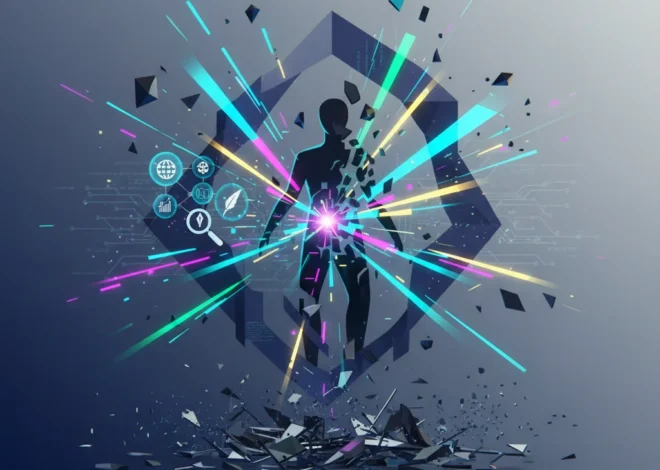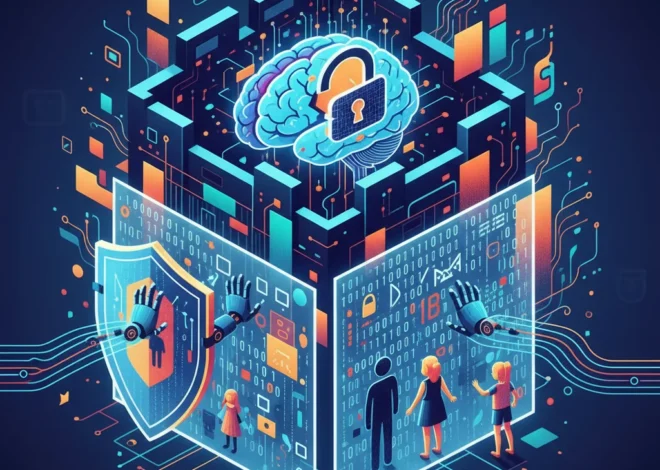The Sound of Slop: Is Artificial Intelligence About to Drown the Music Industry?
Picture this: you open your favorite music streaming app, ready to discover your next obsession. You hit play on a recommended playlist, and the music starts. It’s catchy, well-produced, and sounds… familiar. But something’s off. It lacks a certain soul, a spark of human ingenuity. You later find out that the song, and a million others like it, wasn’t crafted by a struggling artist in a bedroom studio or a high-powered team in LA. It was generated in seconds by an artificial intelligence algorithm.
This isn’t a scene from a sci-fi movie. It’s the near future, and the music industry is on the brink of a seismic shift. We’re not just talking about AI as a fun tool for making a viral TikTok sound. We’re talking about the impending arrival of “AI slop”—a term for the massive, unending flood of AI-generated content that could soon overwhelm our digital soundscape. Based on recent analyses, including a stark warning from the Financial Times, we need to have a serious conversation about what this means for artists, developers, and listeners alike.
What Exactly is “AI Slop” and Why Should You Care?
Let’s be clear: AI in music isn’t inherently bad. For years, machine learning has been used in subtle ways, from mastering audio tracks to predicting hit songs. The difference now is the rise of generative AI—powerful models that can create entirely new music from a simple text prompt. The technology is advancing at a blistering pace, and soon it will be capable of producing music that is, for all intents and purposes, indistinguishable from human-created tracks.
“AI slop” refers to the inevitable consequence of this democratization. When anyone can generate infinite songs for virtually no cost, what happens to the value of music? The concern is that streaming platforms will be deluged with millions of mediocre, algorithmically-optimized, and soulless tracks.
Imagine trying to find a new, genuinely talented artist when their work is buried under a mountain of AI-generated content designed to perfectly game the recommendation algorithm. It’s a discovery nightmare that threatens to:
- Devalue Human Artistry: If a machine can produce a “good enough” song in seconds, it could diminish the perceived value of the time, skill, and emotion a human artist pours into their craft.
- Overwhelm Listeners: Choice paralysis is already a real thing. Magnify that by a billion new tracks a day, and you get listener fatigue and a potential disengagement from music discovery altogether.
- Strain the Economic Model: Streaming services pay out royalties on a per-stream basis. A flood of AI music could divert pennies that would have gone to human artists, creating a chaotic and potentially fraudulent new front in the battle for streaming revenue.
The Tech Behind the Tsunami: Cloud, SaaS, and Automation
For the developers, entrepreneurs, and tech professionals reading this, the “how” is just as fascinating as the “what.” This musical revolution is being powered by the same technological forces driving innovation across all sectors.
At its core are sophisticated machine learning models, trained on vast datasets of existing music. The sheer computational power required to train and run these models is made accessible and affordable through cloud computing platforms. This means you don’t need a supercomputer in your basement to join the fray.
We’re already seeing the emergence of SaaS (Software as a Service) platforms that offer AI music generation as a subscription. These tools are becoming increasingly user-friendly, abstracting away the complex programming and allowing anyone to become a music producer with just a few clicks. This level of automation is unprecedented in a creative field.
This creates a massive opportunity for startups. The race is on to build the most intuitive user interface, the most versatile AI model, and the most seamless integration with existing creative workflows. But with great power comes great responsibility, and the ethical considerations are enormous


